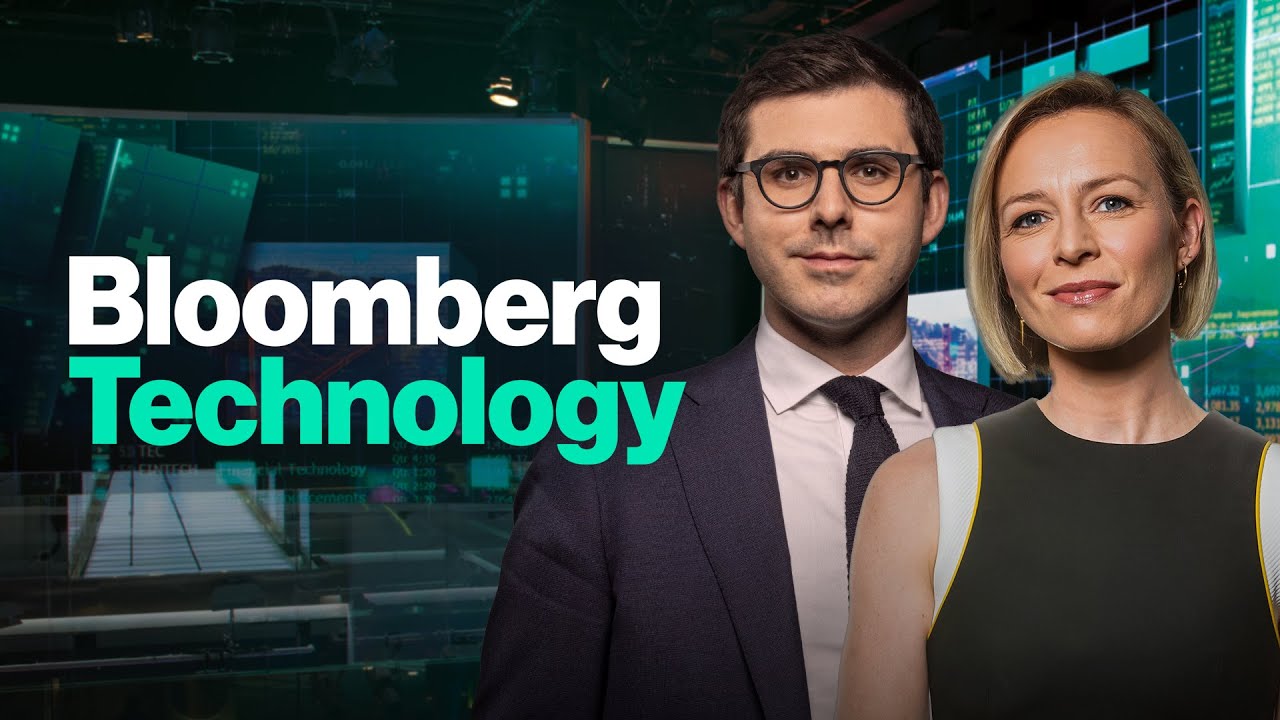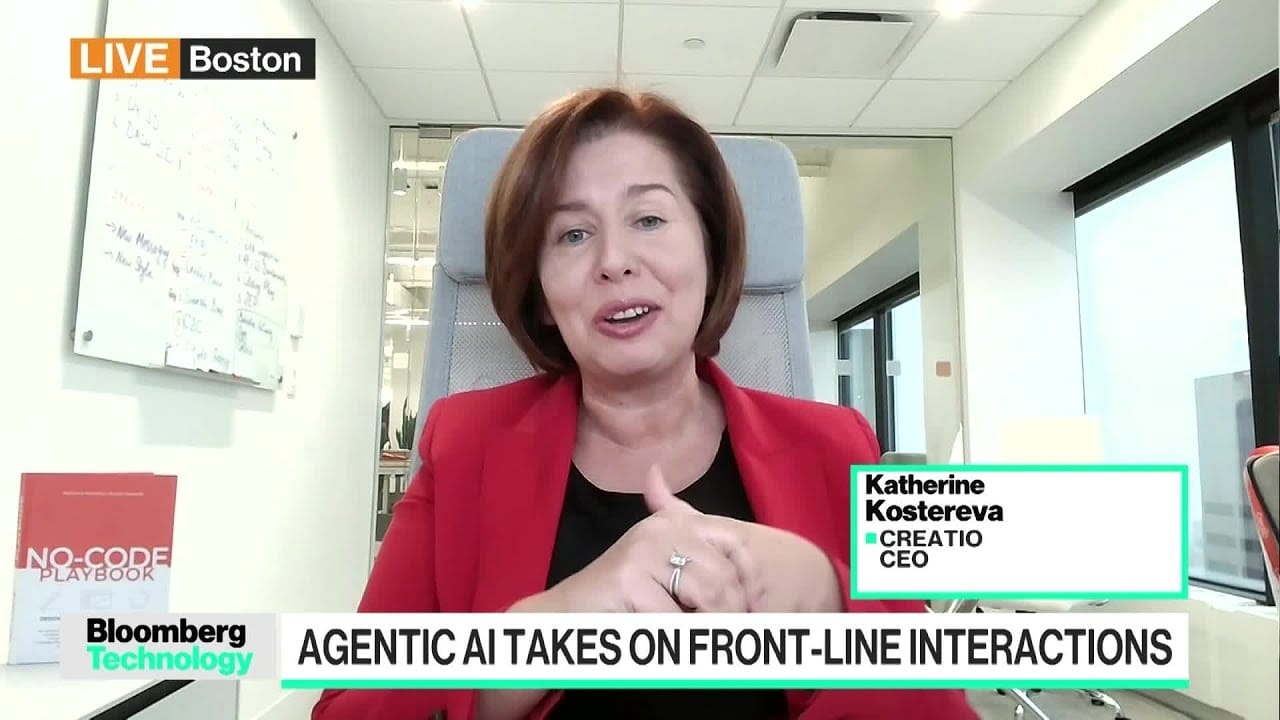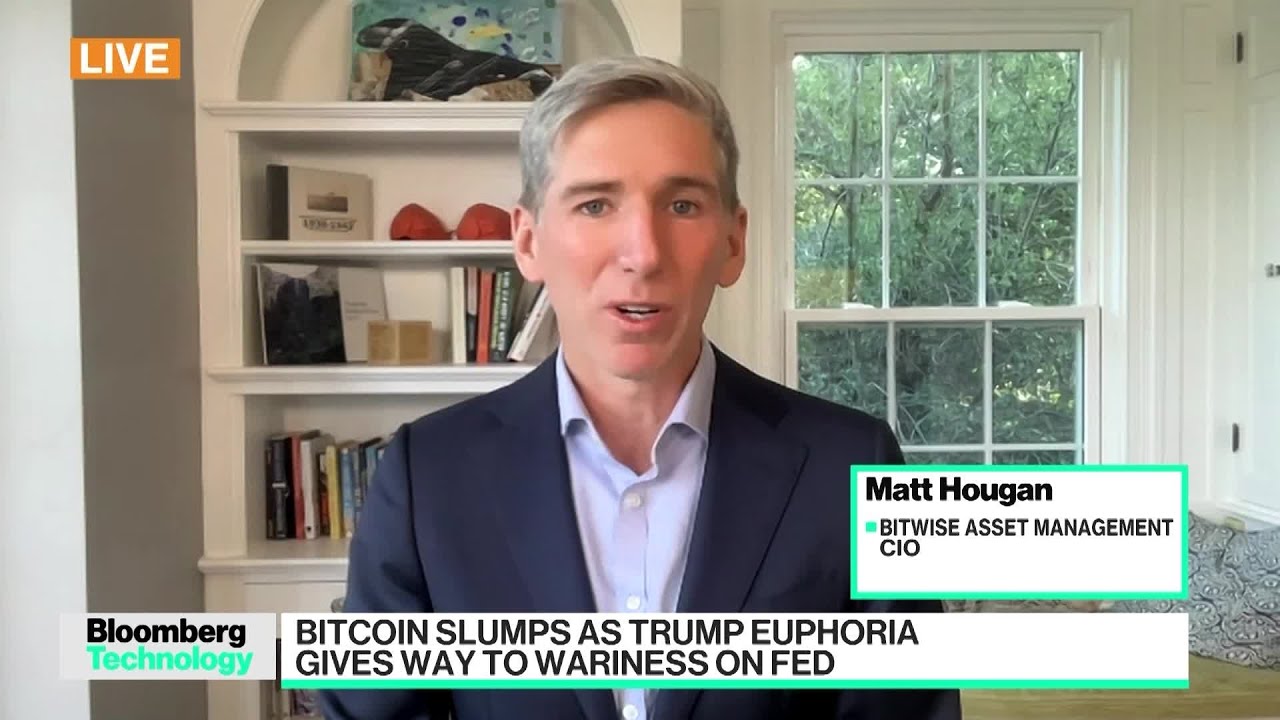EpyllionCo Managing Partner and former Head of Strategy at Amazon Studios Matthew Ball joins Emily Chang to discuss Meta Platforms’ plan to bring learning, work and entertainment to the metaverse, and what this metaverse will look like based on lessons learned from the Internet.
——–
Like this video? Subscribe to Bloomberg Technology on YouTube:
Watch the latest full episodes of “Bloomberg Technology” with Emily Chang here:
Get the latest in tech from Silicon Valley and around the world here:
Connect with us on…
Twitter:
Facebook:
Instagram:
So much has changed in the last couple of weeks you’ve got a new
name for Facebook. You know obviously making this big fat you’ve
got Microsoft making its big bet on the metaverse. Do you see
this as a world where just one or companies will one or two
companies will own it. Or is it going to be much bigger than
that.
It’s going to be so much larger than that. I mean we can look at
the Internet as an example. The digital economy is assumed to be
roughly 18 to 20 percent of the world economy at eighty seven
trillion dollars. The truth of the matter is the big five tech
companies historically considered gaffe though of course
Facebook has changed. Its name was only 10 percent of that
digital economy. It dependent on myriad different developers
semiconductor compute networking and other infrastructure and
optimization companies. The metaverse will be similar.
Can Facebook though build a competitive platform that younger
users want to join and be part of. Can they get beyond these
reputational issues and trust issues.
Can they certainly. We’re looking at a company that is spending
perhaps more on this area than anyone else on earth has a
founder in control with extraordinary conviction and three
billion monthly active users two billion daily active users.
It’s very difficult to say that they can’t solve that sort of
problem but that doesn’t mean it’s going to be easy. In
particular Facebook has a bad reputation that spans roughly a
decade with developers. Ultimately developers are going to build
the metaverse. Developers are going to be required to attract
users. And that requires a skill set that Facebook historically
has not thrived in.
Well now you see Facebook and Microsoft and even Amazon all of
these big tech companies talking about the metaverse. Is this
just going to be a place where big tech companies just get
bigger or are there going to be upstarts and new players that
can sort of take on the cut. The companies that own the Internet
right now.
Conventional wisdom would suggest that we’re going to see some
of today’s leaders thrive in the next generation Internet or the
metaverse. But in particular we’ll see new companies come to the
forefront. Consensus was that AT&T and AOL with lead in the
Internet era that Microsoft’s advantages would endure. And in
fact none of that happened. When we take a look at the current
state of the metaverse some of the thriving companies today have
some 50 billion dollar market caps in a year and a half ago were
sub 5 epic games unity roadblocks which absolutely blew it out
of the park today in earnings. Those companies have a lot of
headroom in front of them and they have many different
capabilities that today’s tech giants do not. Here’s a question
that just came in over IAB. Are we going to be talking about
multiple medal versus in a few years or is there just one.
It’s a bit of a taxonomy question. Most people believe that the
answer is that the metaverse is the definite article. Just like
we don’t say there are multiple Internets there’s no Facebook
Internet Google Internet. There is the Internet. That seems to
be the most likely vision of the future for the metaverse which
like the Internet is premised upon interoperability. But to some
extent that may just come down to how language is used. If we
adopt a metaverse as a platform specific definition then we’ll
end up with multiple metal verses. It’s not really a question of
verbiage. Meantime your Metaverse ETF has been on fire and I’m
sure that some of this news has helped you talk to us about the
future where this is going. As a bet for investors.
Sure will Jensen Wang the founder and CEO of and Video which of
course popped more than one hundred and fifty billion in market
cap Friday and Monday believes that the metaverse economy will
exceed that of the physical world again. Eighty seven trillion.
Even if you have more modest expectations precedent from the
digital economy the Internet mobile Internet suggests that this
is a 10 to 30 trillion dollar opportunity that will manifest in
a decade or a decade and a half. Our belief is that value will
be widely distributed across the semi’s that computes the
payment companies virtual platforms and other infrastructure
providers. Our ETF is designed to provide a diversified
portfolio of exposure to those opportunities and we’re delighted
that investors have been so excited. We announced today that
over two hundred and fifty million in a whim has been amassed
since June 30th and today we saw another three and a half
million shares trade a total of 50 million dollars in value.
Enthusiasm for the subject is only continuing to grow. Meantime
I have to ask you about roadblocks. I mean they had this 72 hour
long outage where their entire universe goes offline. Then they
report these strong results. What does that tell you.
It tells me that this is a true secular and most importantly
generational shift. If you go back to 2008 Facebook had three
hundred million and they use today roadblocks as about two
hundred and ten million and they use forty seven million D.A.
use. That number is up 35 percent year over year against very
challenging mid pandemic comps. And despite that outage we see
significant growth I believe as do many others that we’re
heading towards a future in which hundreds of millions if
billions of people around the world participate in these virtual
worlds. And as a result it doesn’t matter if it’s one company
one outage a quarter in which kids are going more outside than
ever or returning to work. This is a trend that is going to
stay.
Netflix games some movement on that over the last week as well.
How optimistic are you and who. Who does this threaten.
Well the truth of the matter is Netflix is an incredibly high
performing company that takes a very long time horizon to
change. They launch their streaming platform in 2007 they launch
their originals banner in 2009 commissioned their first series
in 2011 aired it in 2013 and it wasn’t until 2017 or 2018 that
most of their spend was on originals. It’s very clear that Reed
Hastings knows how to execute knows how to build new technical
capabilities and knows how to be judicious in his investments
and his expansions. That plus the fact that gaming is an ever
changing category. We’re on the cusp of a VR. Other mixed
reality environments tells me that they have the opportunity to
thrive in this category and they’ve committed themselves to
achieving that over some time horizon.

 Science & Technology5 years ago
Science & Technology5 years ago
 CNET5 years ago
CNET5 years ago
 People & Blogs3 years ago
People & Blogs3 years ago
 Wired6 years ago
Wired6 years ago
 Wired6 years ago
Wired6 years ago
 Wired6 years ago
Wired6 years ago
 Wired6 years ago
Wired6 years ago
 CNET5 years ago
CNET5 years ago

















